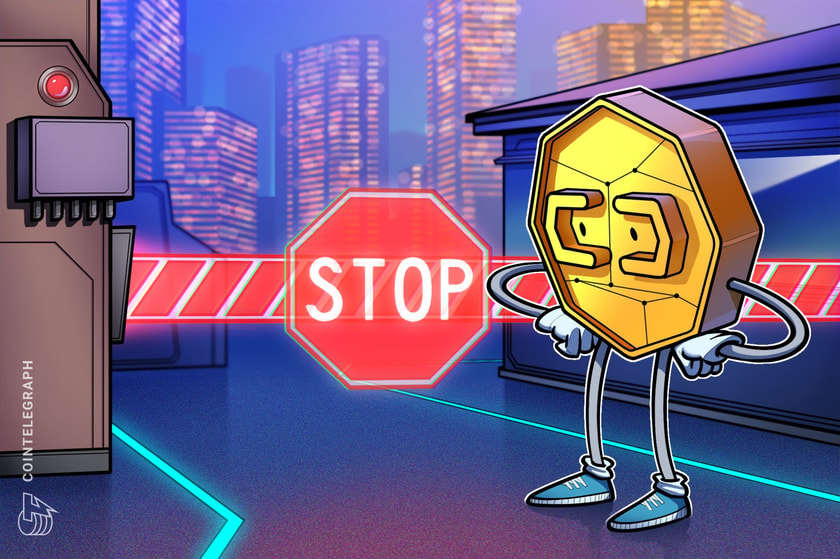New York bans CoinEx exchange, seizes $1.7M in crypto assets

CoinEx was shut down for failing to register as a broker-dealer and for “falsely representing itself as a crypto exchange,” the NYAG said.
Hong Kong-based crypto exchange CoinEx has been banned from operating in New York by Attorney General Letitia James. According to an announcement on June 15, over $1.7 million worth of the exchange’s funds were seized for CoinEx allegedly failing to register as a securities and commodities brokerage.
The agreement resolves a previous lawsuit against CoinEx from February, when the New York attorney general accused it of falsely representing itself as an exchange and failing to register with local authorities.
“As part of today’s consent order, CoinEx is banned from offering, selling or purchasing securities and commodities in New York and is prohibited from making its platform available in the state,” reads the announcement.
As per the agreement, over $1.1 million will be returned to 4,691 New York investors, and more than $600,000 will be paid in penalties to the state.
There are serious consequences for ignoring New York laws.
As a result of our lawsuit, cryptocurrency platform @coinexcom is banned from operating in New York and the rest of the country and will pay $1.7 million in penalties and refunds for impacted New Yorkers. https://t.co/U3wkdfHu3o
— NY AG James (@NewYorkStateAG) June 15, 2023
Furthermore, CoinEx must implement geo-blocking to prevent access by New York IP addresses. It is also forbidden for CoinEx to create any new accounts for United States customers.
“Today’s agreement should serve as a warning to crypto companies that there are hefty consequences for ignoring New York’s laws. My office will continue to crack down on crypto companies that brazenly disregard the law, mislead investors and put New Yorkers at risk,” James noted in the announcement.
CoinEx users will be able to recover crypto funds directly from the exchange over the next 90 days. After this period, eligible investors will be able to receive funds in fiat currency by emailing coinexrefund@ag.ny.gov. According to the announcement, investors will be refunded cryptocurrency or cash equivalents held in accounts as of April 25, 2023.
CoinEx was sued by James in the New York Supreme Court on Feb. 22 for allegedly engaging “in repeated and persistent fraudulent practices” and violating the state’s Martin Act — one of the most rigorous anti-fraud laws in the country. In the complaint, James classified various tokens as “both commodities and securities,” including Amp (AMP), LBRY Credits (LBC), Rally (RLY) and Terra (LUNA).
Magazine: 4 out of 10 NFT sales are fake: Learn to spot the signs of wash trading

